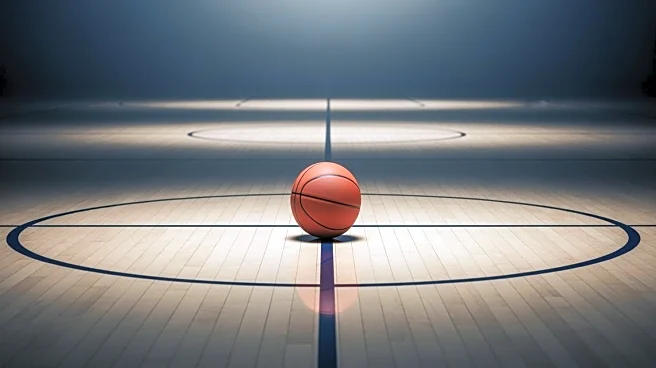What's Happening?
Michigan State Spartans basketball coach Tom Izzo has publicly criticized the NCAA's recent decision to allow former NBA G League players to return and play college basketball. Izzo expressed his disapproval
of the NCAA's powerbrokers, stating that the decision undermines the integrity of college basketball. He emphasized that the issue lies with the adults making these decisions rather than the players themselves. Izzo's comments come after two former G League players, London Johnson and Thierry Darlan, committed to play for Division I schools, Louisville and Santa Clara, respectively. This move challenges the NCAA's previous amateurism and eligibility rules, which prohibited players who had competed professionally from playing college basketball. Izzo highlighted the potential negative impact on high school seniors who might lose their spots to more experienced G League players.
Why It's Important?
The NCAA's decision to allow former G League players to return to college basketball could have significant implications for the sport. It blurs the line between amateur and professional status, potentially altering the landscape of college basketball recruitment and eligibility. This decision may lead to increased competition for college spots, affecting high school athletes who are vying for scholarships and positions on college teams. The move could also encourage more players to enter the transfer portal, seeking better opportunities elsewhere. Izzo's criticism underscores the need for the NCAA to reconsider the broader consequences of its decisions, particularly how they impact young athletes and the traditional college basketball system.
What's Next?
The NCAA may face pressure to reevaluate its eligibility rules and address the concerns raised by coaches like Tom Izzo. There could be calls for clearer guidelines and communication regarding eligibility criteria to prevent unintended consequences for student-athletes. Stakeholders, including college coaches, athletic directors, and policymakers, might engage in discussions to find a balance between accommodating former professional players and preserving opportunities for incoming college athletes. The NCAA's decision could also prompt legal challenges or policy reviews to ensure fairness and transparency in college sports.
Beyond the Headlines
The NCAA's decision reflects broader shifts in the sports industry, where the distinction between amateur and professional athletes is becoming increasingly complex. The rise of name, image, and likeness (NIL) deals and revenue-sharing models further complicates the traditional college sports framework. This development may lead to ethical and legal debates about the future of college athletics, including the rights and opportunities of student-athletes. The evolving landscape could necessitate new policies and regulations to address these challenges and ensure equitable treatment for all participants.









